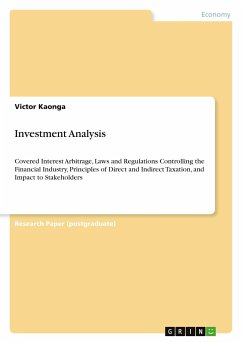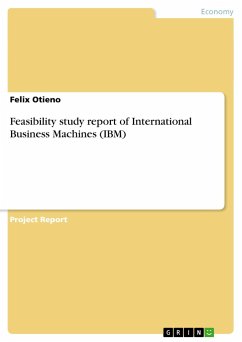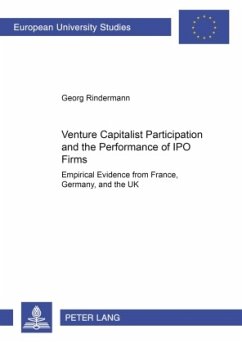
Tokenization of Private Equity Funds in Germany. Direct and Indirect Participation and Feasibility

PAYBACK Punkte
0 °P sammeln!
Master's Thesis from the year 2023 in the subject Business economics - Investment and Finance, grade: 1,0, International School Of Management, Campus Frankfurt, language: English, abstract: The aim of the master thesis is to examine whether private equity is suitable for tokenization. After analyzing different characteristics of private equity, such as the illiquidity or mechanisms like capital calls, the master thesis concluded that the asset class is suitable. Private equity shares in the form of security tokens can help to reduce illiquidity and cashflows like the capital calls can be autom...
Master's Thesis from the year 2023 in the subject Business economics - Investment and Finance, grade: 1,0, International School Of Management, Campus Frankfurt, language: English, abstract: The aim of the master thesis is to examine whether private equity is suitable for tokenization. After analyzing different characteristics of private equity, such as the illiquidity or mechanisms like capital calls, the master thesis concluded that the asset class is suitable. Private equity shares in the form of security tokens can help to reduce illiquidity and cashflows like the capital calls can be automated by the use of smart contracts. For the tokenization, the master thesis recommends to use existing standards, such as the Ethereum blockchain or the ERC-1400 token. Furthermore, different structures for issuing private equity tokens were elaborated. These include a structure for an indirect participation via a special purpose vehicle which issues tokens and simultaneously invests into a fund, but also a direct participation where the fund itself can issue tokens. During the description of possible structures, all relevant laws were included. These include the German Electronic Securities Act (eWpG), German Banking Act (KWG), Security Prospectus Act (WpPG), Capital Investment Act (VermAnlG), Securities Trading Act (WpHG) and the German Investment Code (KAGB). All structures were evaluated from the perspective of private equity funds, institutional investors, private investors or other relevant intermediaries. Also, benefits and challenges for the different structures and participants were discussed. The benefits include an increase in efficiency of several processes, potential cost savings, the possibility for funds to reach more investors or the possibility for investors to diversify their portfolio more. Still, these benefits could only be made use of, if major challenges are mastered by the market participants. These include an insufficient legal framework, different hurdles when implementing a secondary market, or the problem that theoretical approaches might work differently in reality.













